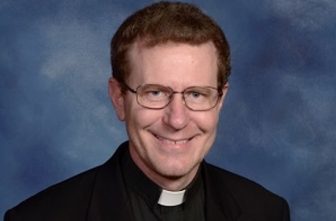
The beauty of the Tanzanian diocese of Musoma, located near the famous Serengeti National Park in eastern Africa, is marred by an ugly practice that Maryknoll Lay Missioner Liz Mach is working to treat and eradicate.
As part of her 38 years working in nursing and public health in Africa, the Pine City native has sought to help girls and young women affected by Female Genital Mutilation. She also educates residents of the city of Musoma (population 134,000) and the surrounding towns in the diocese on how the practice harms women’s health.
Also known as female circumcision or “cutting,” FGM is the ritual removal of some or all of the external female genitalia typically done with or without anesthesia by a traditional circumciser with a blade or razor. FGM is practiced by ethnic groups in 27 countries in sub-Saharan and north-east Africa, in Yemen and Iraqi Kurdistan, and to a lesser degree in parts of Asia.
In addition to affecting reproductive health, FGM often results in infection and higher risk of HIV.
“As a health care provider, this is my main concern,” said Mach, who works for the Musoma diocese. “I want a woman to be able to give birth in the safest way possible, and if FGM hinders this, then it needs to end.”
After studying nursing and public health at then-College of St. Catherine in St. Paul, Mach heard a Maryknoll priest speak in 1975 at her home parish in Pine City in the Diocese of Duluth. Interested in Africa, she decided to serve as a missioner there.
“I went for three years, and I am still there,” she said. “God makes plans while we think we are making our life’s plans, and sometimes they are very different pathways.”
In Sudan and Tanzania, Mach has worked in a hospital as an advocate for the poor, as well as in administration. She developed a medical school and helped fund and build a hospital intensive care unit.
For the past three years she has been involved with education, health and social services in the diocese’s Planning and Development Office, including overseeing Jipe Moyo, the diocese’s shelter for young people fleeing FGM. Mach received support from the Society for the Propagation of the Faith to build the convent for the nuns that work at Jipe Moyo. Mach also has worked on programs to eliminate the practice by training catechists. She also addresses other forms of abuse and help residents advance economically.
A dangerous ethnic tradition
FGM is done on young women usually by their relatives as a preparation for marriage, mostly during November and December.
“People will say a woman cannot be married in her ethnic tradition if she is not circumcised, but we are seeing with the youth the understanding and willingness to marry whomever they choose,” Mach said. “This is why it is so important to have men and boys as part of our programs as they help make the change. It really is about education for all. Once people understand the consequences of FGM and what it does negatively to a girl’s/woman’s life throughout all of her reproductive years, they are willing to make the changes needed.”
Up to 44 percent of families in the Mara region where the diocese is located practice FGM — and the number is increasing, she said. Currently, FGM is practiced in 23 of the diocese’s 31 parishes.
“Is this like the last big kick of the dying zebra that is happening, or is it going even deeper into secrecy?” Mach said. “We believe it is the last kicking out. And if we can make an all-out effort, we can see this decrease significantly and possibly end. Other cultural practices have ended when they are either no longer needed. . . . This can end, too.”
Hope and healing
Founded by the Musoma Diocese to care for victims of FGM in 2001, Jipe Moyo is a shelter primarily for girls ages 8 to 16 who are fleeing FGM. Others come after suffering from FGM to receive treatment for infections and HIV testing or because of abuse or child labor, Mach said. They find love and spiritual support, along with physical and mental healing, at the shelter run by the Immaculate Heart Sisters of Africa.
“I visit many times during the week as I enjoy being with the children, and it puts a face to a ministry and all the work we are trying to do to end FGM,” she said. “It also is the place that tugs at my heart strings.”
FGM is one of the Musoma Diocese’s many challenges, but Mach and others aren’t afraid to take it on.
“We know that to live authentically as Christians, we need to respect each person.”
A call to Catholics
She encouraged Catholics to pray for the work in Musoma.
“It keeps us going,” she said “Pray to end domination and abuse done to others. Pray for education, and loving and caring people to be of help to these children.”
Catholics also can help financially through the Society of the Propagation of the Faith collection that is taken up on World Mission Sunday, Oct. 19.
Mach said she hopes Minnesota Catholics will better understand how interconnected we are and how they can help with mission work.
“I come as a Catholic missioner from Minnesota and working in Tanzania for 38 years to tell my story and Jipe Moyo’s story to help the world become just a bit smaller.”
Learn more about Maryknoll Lay Missioners at www.mklm.org.
Stories from Musoma, Tanzania

Eliza
Eliza is 14 years old and arrived at Jipe Moyo in July. She was living with her uncle because her mother, who left to find work, never returned. Eliza’s father died a short time after. The uncle had been abusing her, and when Eliza discovered he planned for her to be “cut” (the term for Female Genital Mutilation) and married, she decided to flee.
She found someone to take her to Musoma. That person dropped her off at a bus stop promising to return soon. Eliza waited the entire day, but that person never returned. Again, she was abandoned. Child advocates found her and brought her to Sister Chacha at Jipe Moyo.
Eliza wants to finish school to become a teacher. Now she has a chance to follow her dream rather than be a victim of Female Genital Mutilation and forced into marriage.

Pascalia
Pascalia is 15 years old and had lost her mother. Her father was an alcoholic and had been abusing Pascalia. He announced that Pascalia was to be “cut” at a ceremony and married to a much older man.
Aware that this meant her schooling and future dreams would end and that she faced a lifetime of pain and suffering, Pascalia decided to escape her father’s plans. She heard about Jipe Moyo on the radio and secretly found help to get to the shelter. She arrived in June.
She is in her first year of high school and wants to become a nurse.
“I cannot imagine the pain that they must have felt and experienced. This is why Jipe Moyo is so important to us. We offer them a place of safety and of love, so their healing process can begin. Thank you, Society for the Propagation of the Faith!”
Liz Mach, Maryknoll Lay Missioner




